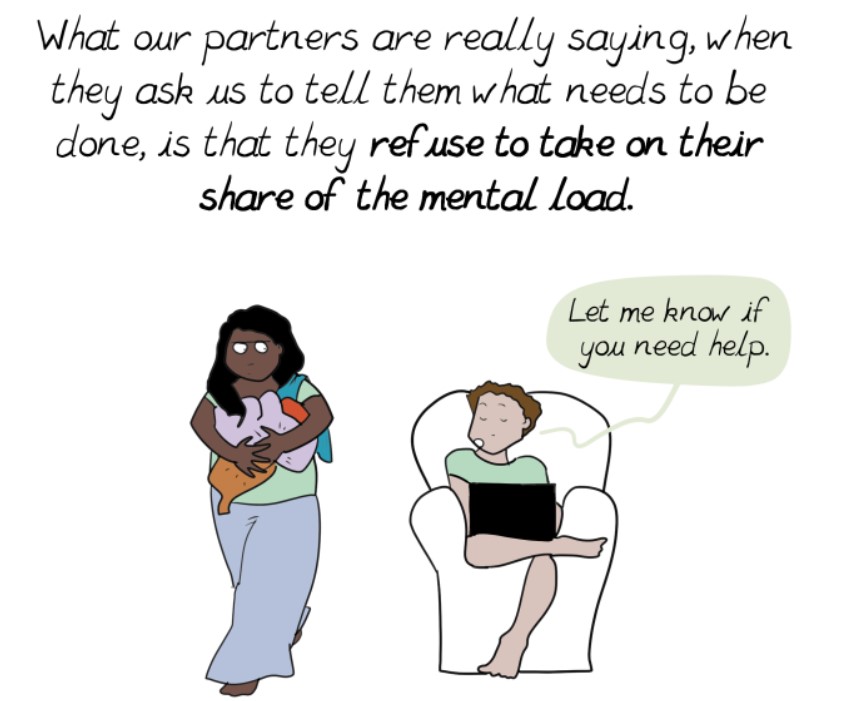The heavy, yet inevitable sigh that is echoed by mothers everywhere as they watch or read about Daniel Andrew’s latest announcement – crisis schooling again, for a further 4 weeks.
Having schools closed and children try to attend school at home was difficult for so many parents everywhere for so many reasons. Trying to support your child to use technology “independently”, sitting by their side reading instructions, having them ask you the questions when they didn’t know, struggling with watching themselves on video…. then there’s your own full-time work that needs to be attended to, then there’s the matter of small and big humans who require approximately eleventy-billion snacks a day, the dog that needs walking, the groceries that need doing, the colossal load of laundry and cleaning the house, the list goes on. We proceed to collapse on the couch at night, with not an inkling of self-care energy left. 
1940, meet 2020, where the burden has primarily fallen on the mother to look after the children and the house as well as her own job, a role that has been long-documented but exacerbated during this pandemic. The mental load of this pandemic tends to lean heavily on mothers, and it’s up to partners to step up. Even having this conversation and gearing up to the conversation is yet another mental load that mothers as partners must undergo, but one that will be helpful in the long run to making partners aware of the mental load.
Here are some tips for having “the” conversation:
1) Take a step back and release any anger and resentment you may be experiencing.
The conversation will flow best and be most productive if you are able to calmly put your points across. This conversation may bring up a lot of resentment towards your partner as to how things were in Lockdown v1.0 where they too, felt that the pandemic impacted them adversely and work was hard. Those feelings are valid too. Conversations that start with “Yes, but my problems are bigger” generally do not end well, even when true. So fill up that cup, go for a walk/jog, some silent meditation, rage air guitar to Metallica, sing loudly to Smash Mouth in the shower – you do you for a reset.
2) Focus on the team effort
The focus of the conversation should turn to the “we”, instead of me vs you. Often, a good warm-up is to discuss times in the past where you’ve worked well together and well and truly acted as a team. Be it when you said your vows, or helping each other cope through a miscarriage or through a loved one dying, or when you were on the same page with disciplining your child and truly had each other’s back. 
3) Break the mental load down
Modern fathers are stepping up in ways that have never seen before in previous generations, but there is more to go, so much more to learn. A lot of the time we find that we are able to patiently describe the feeling and connect the consequences for our children. (E.g. You can’t draw on the walls because the ink may not come out of the walls.) as we are able to acknowledge that these children are still learning.
We need a similar focus on supporting partners to gain visibility of the tasks and work that is required, as it is not something they have been privy to working with, and therefore do face a learning curve. It is helpful to come at this from an “I” perspective, where you state the feeling, and why you are feeling this way. For example, “I am feeling overwhelmed because there are too many things to do in the time that I have and I simply cannot cope”. On the contrary, “you” messages (E.g. “You don’t do enough for us”) tend to have the impact of having the partner feel defensive.
4) Pause
Connect in the overwhelm. Allow your partner to hold space for you, just like you have held space for everyone in the family all the time.
5) Invite them to share the load
It is usually helpful to write down a list of what you do in the house, and invite your partner to share in with these. When it is written down, the list becomes objective, instead of subjective. Your partner can then choose which chores they would like to take responsibility for, and you may similarly voice which chores you may like to keep. For instance, I love the cooking, and would happily clean the kitchen if it meant that he takes the laundry.
6) Set a date in a week.
This is just a check-in to see how everything is going. This can also be a time for acknowledgement if they have stepped up – “I see you doing this, and it’s really helped me”. It would be great if this was reciprocal, where each parent states one thing that they have seen the other doing that was helpful. This can also be a useful time to check back in on how each parent is handling their self-care and emotions during this time. It’s all about working together as a team, and a more efficient, well-oiled one.
7) Celebrate
Celebrate because you’ve had a real, honest conversation and are doing something for mothers everywhere, and fathers everywhere as they learn to become better and better partners with each generation that goes. We do better the more you know. Have a glass of wine together, a block of chocolate, a cuddle on the couch, or even hey, relinquish the remote control and watch the Mandalorian.
Here’s to working as a better team in Lockdown v2.0!
About the Author –

Onwards and Upwards Psychology is a child and adolescent centred psychology practice founded in 2018 by psychologist Sandhya Menon. It operates on positive psychology principles and is guided by the maxim: children do well if they can. Sandhya hopes to guide children and families in seeing the strength that exists within them and to then use this as a platform for addressing areas of concern. The practice conveys evidence-based techniques in an easy to digest fashion using practical strategies.
